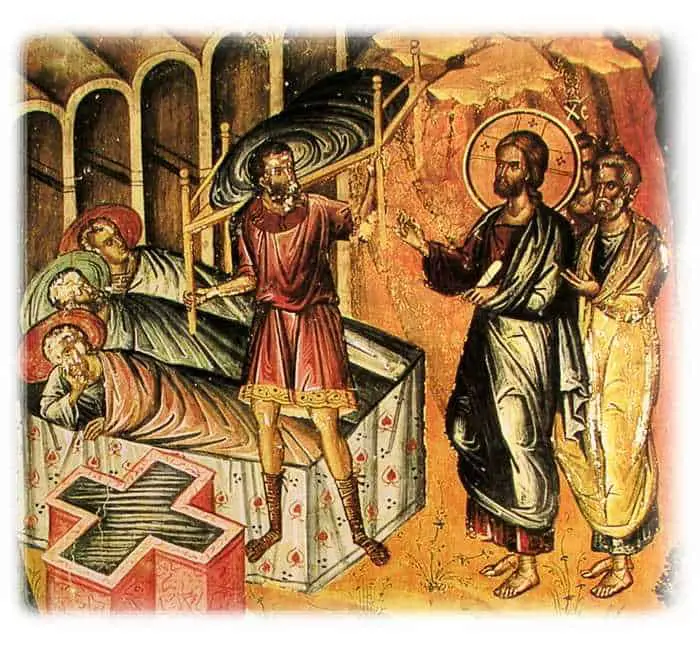St. Nikolai Velimirovich: Only the foolish think that suffering is evil . . .

Only the foolish think that suffering is evil. A sensible man knows that suffering is not evil but only the manifestation of evil and healing from evil. Only sin in a man is a real evil, and there is no evil outside sin. Everything else that men generally call evil is not, but is a bitter medicine to heal from evil. The sicker the man, the more bitter the medicine that the doctor prescribes for him. At times, even, it seems to a sick man that the medicine is worse and more bitter than the sickness itself! And so it seems at times to the sinner: the suffering is harder and more bitter than the sin committed. But this is only an illusion – a very strong self-delusion. There is no suffering in the world that could be anywhere near as hard and destructive as sin is. All the suffering borne by men and nations is none other than the abundant healing that eternal Mercy offers to men and nations to save them from eternal death. Every sin, however small, would inevitably bring death if Mercy were not to allow suffering in order to sober men up from the inebriation of sin; for the healing that comes through suffering is brought about by the gracefilled power of the Holy and Life-giving Spirit.
+ St. Nikolai Velimirovich, “23. The Third Sunday After Easter: The Gospel on the Miracle at Bethesda John 5:1-16,” Homilies Volume 1: Commentary on the Gospel Readings for Great Feasts and Sundays Throughout the Year
St. Nikolai Velimirovich: Only the foolish think that suffering is evil . . . Read More »


